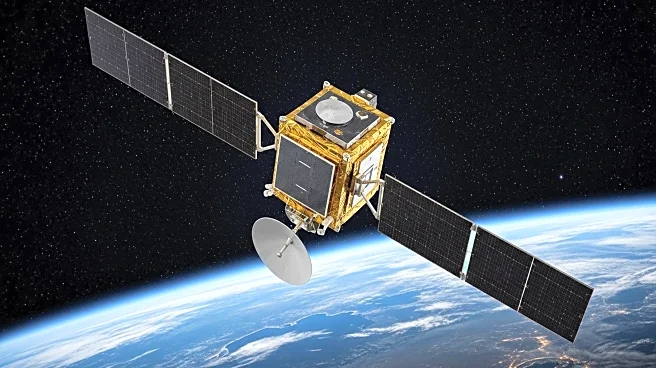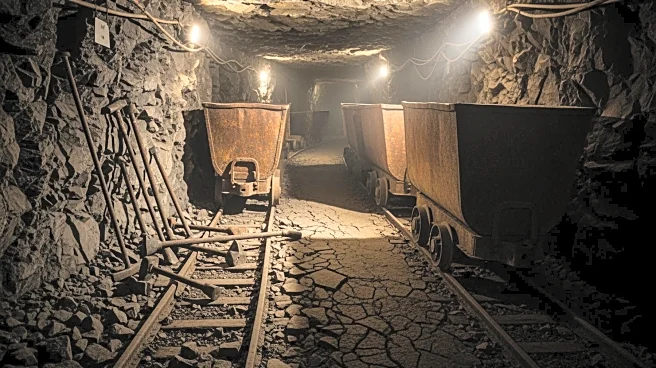What's Happening?
The UK Space Agency (UKSA) has allocated £6.5 million (approximately $8.7 million) in grants to 23 international projects focused on water quality monitoring and life sciences research. This funding, part of the UKSA's International Bilateral Fund, exceeds the initial allocation due to high demand. Among the recipients, a UK and Australia-based consortium led by Surrey Satellite Technology Limited (SSTL) received a significant grant to develop a satellite system for biochemical water analysis. This project aims to enhance water monitoring capabilities in both countries. Additionally, several life sciences projects received funding, including a proposal to design a cargo handling system for space-based research and development, and a project to develop anti-ageing treatments for astronauts.
Why It's Important?
The funding from the UKSA highlights the growing importance of international collaboration in addressing global challenges such as water quality and health. By supporting projects that leverage space technology, the UKSA aims to foster innovation and economic growth. The development of advanced satellite systems for water monitoring can lead to more precise environmental data, benefiting both scientific research and policy-making. In the life sciences sector, space-based research offers unique opportunities for drug development and medical advancements, potentially leading to breakthroughs in treatments for diseases. The focus on anti-ageing treatments for astronauts also underscores the need to address health challenges associated with long-term space missions.
What's Next?
The projects funded by the UKSA are expected to run until March 2026, with ongoing collaboration between international partners. As these initiatives progress, they may lead to new technological advancements and commercial opportunities in the space sector. The decommissioning of the International Space Station after 2030 will further shift research and development to commercial facilities, potentially increasing the demand for innovative space-based solutions. Stakeholders in the space industry, including governments and private companies, will likely continue to explore partnerships and investments to capitalize on these emerging opportunities.
Beyond the Headlines
The UKSA's funding strategy reflects a broader trend of diversifying space collaboration beyond traditional European partners. By engaging with countries like Australia, Canada, and the US, the UK aims to strengthen its position in the global space industry. This approach not only enhances technological capabilities but also supports geopolitical relationships. The emphasis on sustainable food systems and anti-ageing treatments in space research could have long-term implications for addressing environmental and health challenges on Earth, potentially leading to more sustainable practices and improved quality of life.








